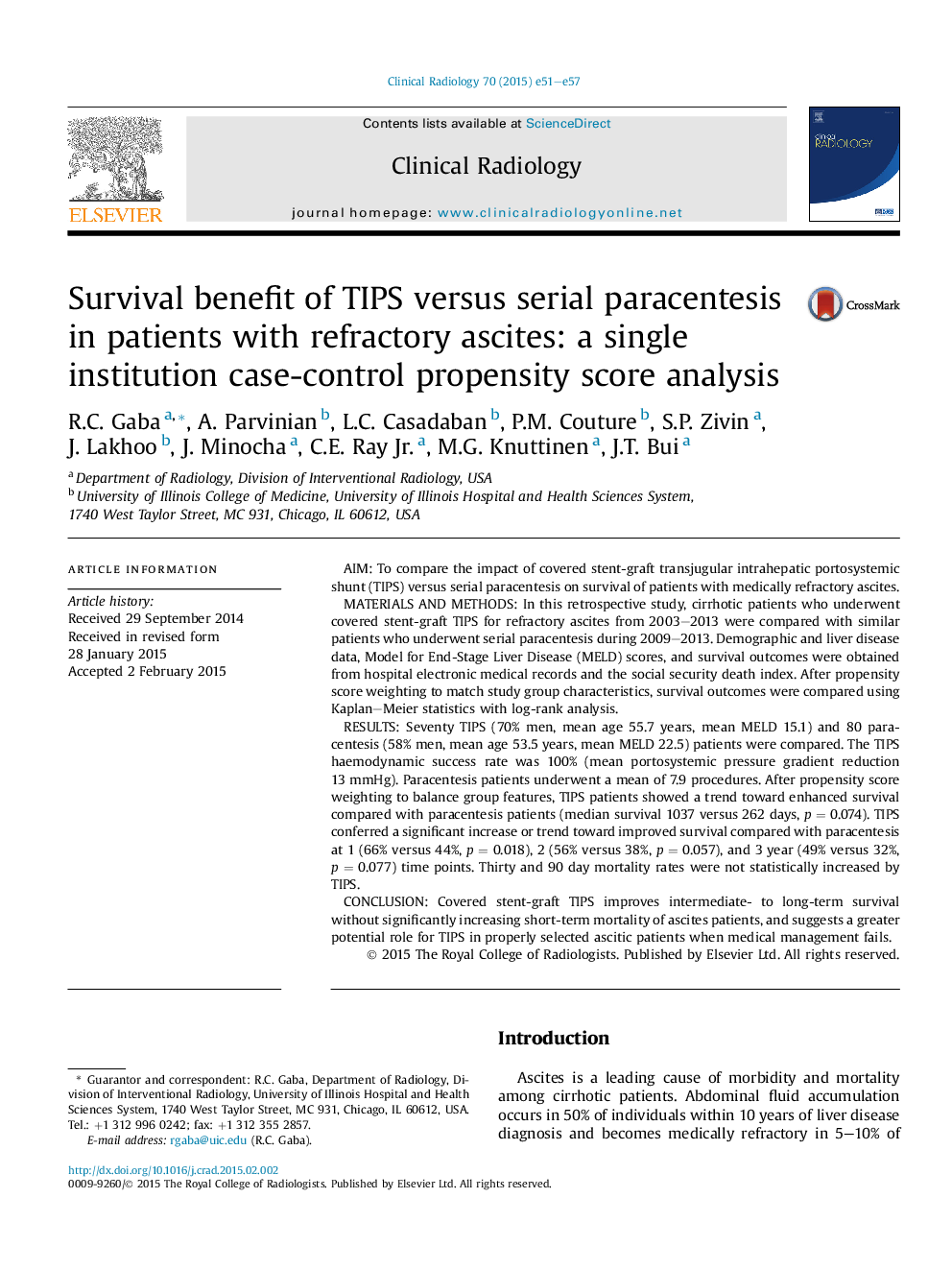| Article ID | Journal | Published Year | Pages | File Type |
|---|---|---|---|---|
| 6190963 | Clinical Radiology | 2015 | 7 Pages |
â¢The survival benefit of TIPS for patients with refractory ascites remains unproven.â¢A case-control study was used to compare survival after TIPS versus paracentesisâ¢Propensity score weighting was used to balance study group features.â¢TIPS patients showed enhanced survival at short- and intermediate-term time points.â¢TIPS may have a greater role for in ascites patients when medical therapy fails.
AimTo compare the impact of covered stent-graft transjugular intrahepatic portosystemic shunt (TIPS) versus serial paracentesis on survival of patients with medically refractory ascites.Materials and methodsIn this retrospective study, cirrhotic patients who underwent covered stent-graft TIPS for refractory ascites from 2003-2013 were compared with similar patients who underwent serial paracentesis during 2009-2013. Demographic and liver disease data, Model for End-Stage Liver Disease (MELD) scores, and survival outcomes were obtained from hospital electronic medical records and the social security death index. After propensity score weighting to match study group characteristics, survival outcomes were compared using Kaplan-Meier statistics with log-rank analysis.ResultsSeventy TIPS (70% men, mean age 55.7 years, mean MELD 15.1) and 80 paracentesis (58% men, mean age 53.5 years, mean MELD 22.5) patients were compared. The TIPS haemodynamic success rate was 100% (mean portosystemic pressure gradient reduction 13 mmHg). Paracentesis patients underwent a mean of 7.9 procedures. After propensity score weighting to balance group features, TIPS patients showed a trend toward enhanced survival compared with paracentesis patients (median survival 1037 versus 262 days, p = 0.074). TIPS conferred a significant increase or trend toward improved survival compared with paracentesis at 1 (66% versus 44%, p = 0.018), 2 (56% versus 38%, p = 0.057), and 3 year (49% versus 32%, p = 0.077) time points. Thirty and 90 day mortality rates were not statistically increased by TIPS.ConclusionCovered stent-graft TIPS improves intermediate- to long-term survival without significantly increasing short-term mortality of ascites patients, and suggests a greater potential role for TIPS in properly selected ascitic patients when medical management fails.
